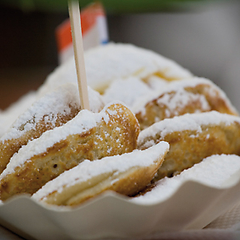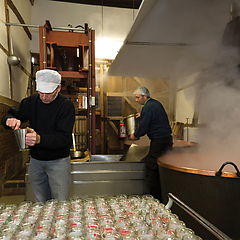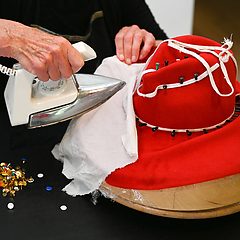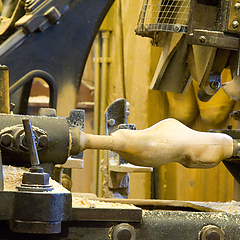The process of oilseed crushing starts with raw materials such as flax seed, linseed or nuts, and with an oil mill set in motion. If the mill is powered by wind, the miller starts it up, if it is a water mill, the oil maker does it himself. This sets in motion two large round stones in the mill, the tilting stones, which roll over a metal platform. Under these, the oil miller grinds the chosen raw material until flour remains. This flour is heated to about 50 degrees on a heated plate and mixed around. The heat allows the oil to be released from the flour. The warm flour is then poured into bags placed between press mats and pressure is applied to these full bags using piles and wedges. Thus, oil emerges and can be collected. In the pressed bags, the residual product remains: the 'cakes'. These are either dried directly into animal feed, or they are pounded and pressed into flour again. Again, the final product is a cake.
Oilseed crushing in a water or windmill is a sustainable craft. The oil and by-products are produced in an almost energy-neutral way and no waste remains.
The oil can be used as a base for soap and paint. Innovative products derived from the oil include natuleum, an eco-friendly carboleum, and hardwood oil. Some mills filter the linseed oil in such a way that it is also suitable for human consumption.



